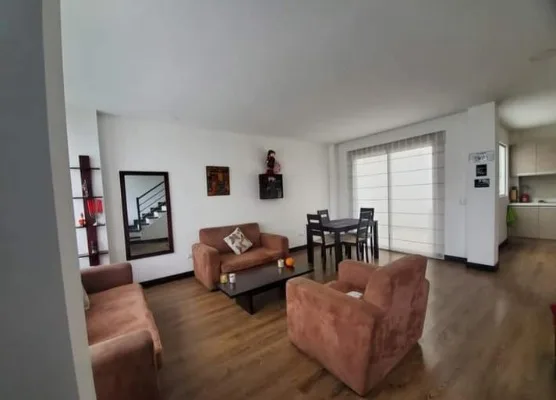Leaving a ‘target nation’ behind can often mean discovering how to relax once again
By Lee Harrison
Recently, I had a good lesson in what it’s like when your country is a target and experienced one of the biggest benefits of being part of another culture.
A few days ago I found myself walking along a quiet, tree-lined street in Pocitos, Montevideo, one of the city’s nicest neighborhoods. I checked the address I was looking for and walked up to an attractive, colonial-style home.
As I approached the front gate, it glided open. A few yards farther on, I reached a beautiful old-fashioned wooden front door, which also opened quietly as I approached. (I thought it was a clever system, but later learned that the receptionist inside had seen me coming and pushed a button.)
I turned left into what was once a sitting room in this nicely restored home. I received a warm and friendly greeting from the woman seated there and noticed the homey smell of rich, freshly brewed Colombian coffee. The lady offered me a cup and asked me to make myself comfortable in one of the nearby chairs.
This may sound like I was visiting a coffee shop, but, no, that’s not what was going on. I’d come to the Colombian embassy in Uruguay to get some help with my Colombian residency visa. The setting may not seem like an embassy, but, in fact, it’s just like two other embassies I’ve visited in this shady neighborhood.

A peaceful stroll or a bike ride in the historic district can be the beginning of a good day.
I stated my business with the receptionist, and she said that I should discuss it with the Consul directly. This was a surprise, the idea that the person in charge of the consulate would have any personal interest in my visa.
But within a minute, a well-dressed woman came out and introduced herself as the Consul. She asked me to bring my coffee, and we proceeded into her office where we had a pleasant talk as she looked over my paperwork. After making a few suggestions about how to extend the life of my visa, we talked about the various neighborhoods in Medellín and how the city has improved these past few years.
The experience was friendly and relaxed and altogether pleasant.
The following day, I headed for the U.S. consulate to get a signature notarized. Quite a different experience.
It started with my standing in the driving rain for more than 45 minutes. I knew that American citizens now require an appointment to visit most U.S. consulates, but I didn’t realize that they wouldn’t let you in the door to take shelter until your appointed time. So I retreated to the awning of a store down the block, where I joined a few other Americans huddled there.
When my time arrived, the warm, dry guard finally let me in, where I stated my business through bullet-proof glass. A young lady directed me to a security screening, like those at airports. Those pocket items they didn’t think I should carry inside were taken from me and stored.
“Next, I crossed from the security portal, about 100 feet to the embassy itself, where I encountered a Marine Embassy Guard. Here I removed my belt and everything from my pockets again and passed through another detector. The Marine nodded to his associate in a little booth, who pushed a switch that unlocked the bomb-proof door.
“Inside, I waited my turn until I could shout my request to a not-so-friendly consular employee on the other side of a bullet-proof window. All this security felt pointless in a non-violent, non-confrontational country like Uruguay’s.
But my point isn’t to criticize the American consulate for their security measures. It’s likely they’re warranted.
Instead, my experience points out one of the hidden benefits of life abroad, of being a part of another country and culture. It shows what it’s like to be out of the spotlight and off the world’s radar screen
I’m a resident of Ecuador, Uruguay, and, now, Colombia. As such, I’m part of countries that are neither aggressors nor the targets of aggression on the world stage. They’re not occupying anyone’s homeland, haven’t toppled anyone’s government, aren’t pushing any agenda in the Middle East, and haven’t taken on any of the world’s religions. Whether or not these actions are beneficial to American citizens is not my point. The fact is that they make the United States a target.
And, to the point, without that ‘target’ status, other countries are safer, more peaceful and less paranoid, because they have few enemies.
You’ll feel the difference when living abroad. You’ll realize how much things like the War on Terror have made a difference to the mindset of the average American. Once you’re removed from it, you’ll realize how much tension used to permeate your everyday life — because you’ll realize that it’s gone.
By living abroad — even if it’s part-time — you’ll be giving up the cultural equivalent of bullet-proof glass for a welcoming cup of coffee, in more ways that you can imagine.
_____________________
Lee Harrison has written and lectured about living overseas for more than 15 years. A former resident of Cuenca, he has also lived in Uruguay, Colombia, Chile, and Mexico and now divides his time between the U.S. and Latin America.


















